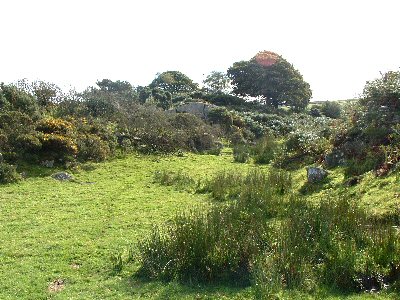Here and there a living house doffed a plume of smoke to the new spirit of the morning. The pastures as yet were empty and the other fields still.
Upended ploughs and spring-harrows, with sole-plates polished by wear, lay on headlands or against the briars to one side of a gap. And every gap lay open, the earth around it pitted with tracks.
A bird pecked a straw from a field dunghill and flew away. On a chimney nearby the jackdaws were already rowdy, building a nest. A red lorry came down John Bwee’s Hill near Myles’s.
In Famine relief the hill had been cut into steep ditches of stone and earth, and the lorry might have been a ball trundling down an alley. Silently it slid from the hill along the level road through Flurry’s Bog without any visible bump until it glided over the high-backed bridge : but as it charged for the hill I heard it scream.
Over the hill by the chapel it went with a final burst and roar towards Forkhill … and then there was a lark somewhere.
A thrush too in the bent, gnarled trees of the graveyard. A goat grazing on a high ditch whipped up its head as I came abreast – and then I saw the kid tucked behind a whin.
Silently too, and steaming north, a train deep in the cutting of Faughil unravelled a steam-and-smoke thread of grey expanding wool behind it. Then a little herd of cattle appeared on John Bwee’s Hill and, though the drover was an indistinct though smart-stepping speck, I recognised the man as Jemmy Ned.
… more later …
